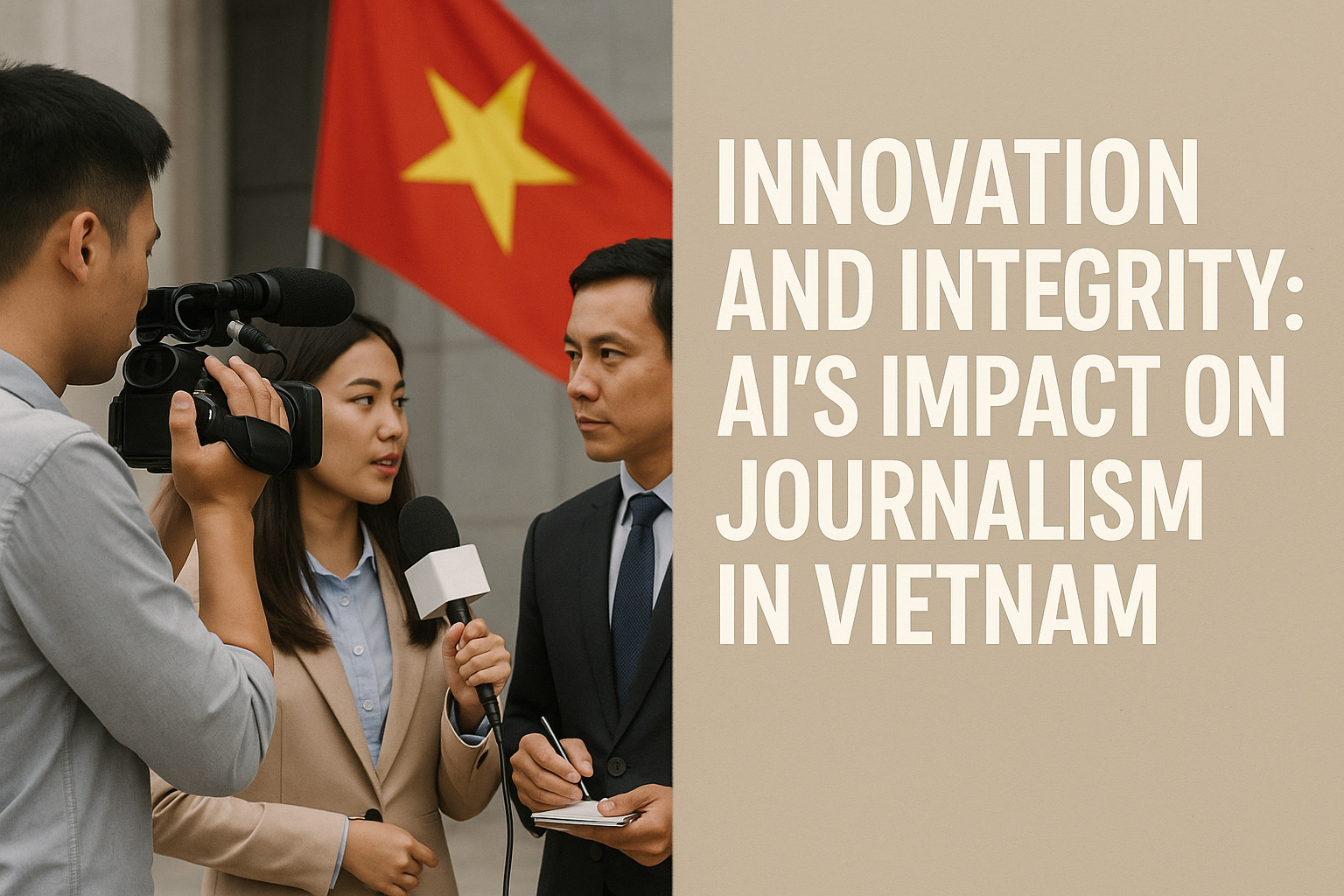As artificial intelligence increasingly reshapes global media landscapes, a key international conference held in Hanoi focused on AI’s transformative impact on Vietnamese journalism. The event, organised by the Academy of Journalism and Communication (AJC) in partnership with the Korea International Cooperation Agency (KOICA), gathered experts and stakeholders to discuss how journalism must evolve in response to rapid technological advances and the digital age’s new demands.
Permanent Deputy Minister of Culture, Sports and Tourism Le Hai Binh opened the conference with a strong message on the dual-edged nature of AI in media. He emphasised that AI offers powerful tools to enhance the speed, efficiency and reach of news production and distribution.
However, it also brings significant ethical challenges, such as the proliferation of fake news, misinformation and the manipulation of public opinion, which could undermine trust in journalism and social cohesion.
“Journalism is entering a new era where technology can generate and distribute news faster than humans can,” Le Hai Binh said. “But the core values of journalism, truthfulness, integrity and constructive social contribution, must continue to be upheld by humans.”
He urged the development of a flexible, interdisciplinary governance approach that involves government bodies, media organisations and educational institutions. This collaborative effort is essential to safeguard the ideological foundations of the Party while embracing innovation.
A key takeaway from the conference was the pressing need to establish a comprehensive legal framework governing the use of AI in journalism. Le Hai Binh pointed out that such a framework would not only regulate AI’s ethical application but also encourage the adoption of advanced technologies within newsrooms across Vietnam.
Equally important is enhancing the digital capacity of journalists, enabling them to effectively work alongside AI tools and uphold journalistic standards in a fast-evolving environment.
In addition, participants highlighted the importance of ongoing public awareness campaigns to educate citizens about AI-driven news and promote media literacy, ensuring audiences can critically evaluate information sources in an increasingly complex digital ecosystem. They also stressed the need for international cooperation to share best practices and regulatory models.
Associate Professor Dr. Duong Trung Y, Deputy Director of the Ho Chi Minh National Academy of Politics, highlighted the importance of mastering AI as a strategic imperative for journalism to better serve national development goals and policy communication. He advocated for the AJC to conduct a thorough review of AI’s impacts on the media sector and to develop strategic recommendations to guide the future.
These include reforming journalism curricula to incorporate AI knowledge, expanding AI research initiatives and improving training for journalism educators to prepare the next generation of media professionals.
The conference also featured remarks from Lee Byunghwa, Director of the KOICA Vietnam Office, who reiterated KOICA’s commitment to supporting Vietnam’s media development. Lee emphasised the importance of ongoing knowledge exchange and partnerships with Vietnamese institutions, including the AJC, to foster innovation and capacity-building in journalism.
The discussions were structured around four major themes: understanding AI’s current and potential impacts on journalism; exploring the opportunities and challenges AI presents; formulating policies and technological strategies to integrate AI effectively; and defining the role of educational institutions in preparing future journalists.
Moreover, experts called for investment in AI infrastructure to ensure equitable access to advanced tools for media outlets across urban and rural regions of Vietnam.
This gathering underscored the urgency for Vietnam to keep pace with global trends by harnessing AI’s potential responsibly while maintaining the integrity and societal mission of journalism. As the media landscape evolves rapidly, the combined efforts of policymakers, media practitioners and educators will be crucial in shaping a future where AI complements human judgment to deliver trustworthy, timely and meaningful news to the public.
Source: https://opengovasia.com/


